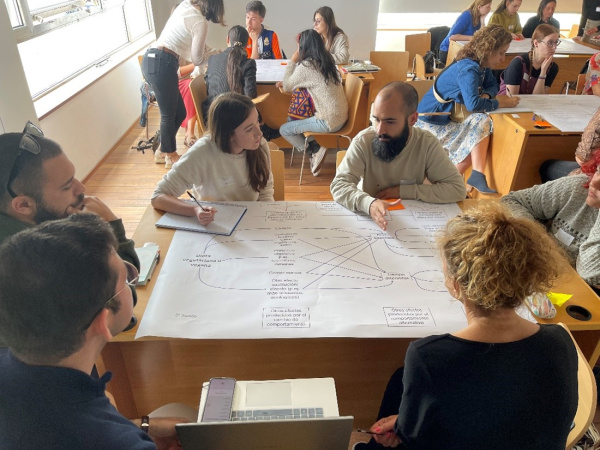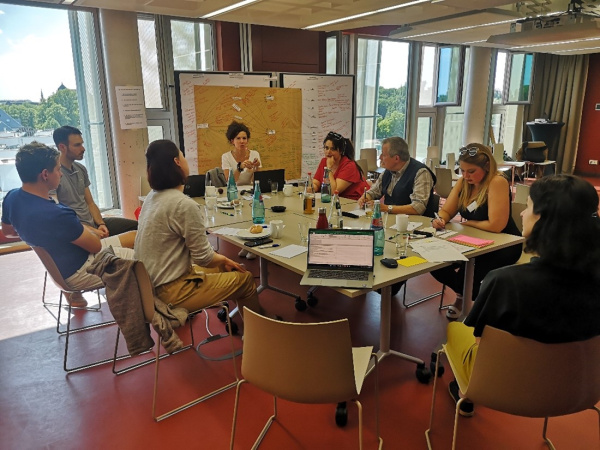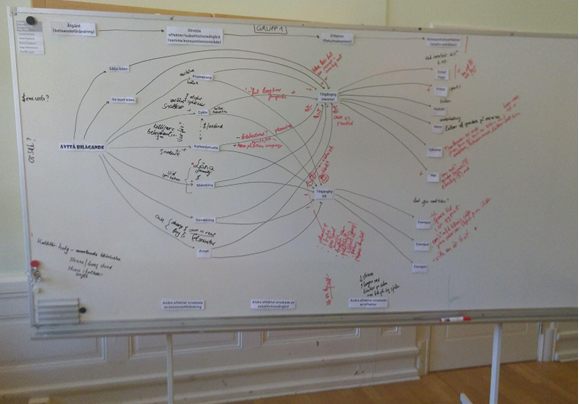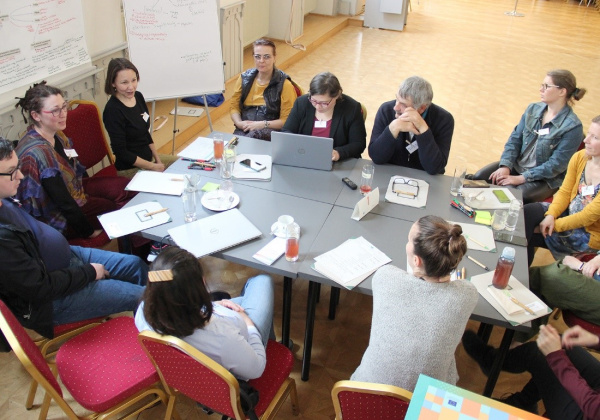
The EU 1.5° Lifestyles project has explored the significant behaviour changes needed for European citizens to truly adopt 1.5° lifestyles and we have interviewed “pioneers” who have adopted low-carbon lifestyles to tell us about what has helped them and what has been challenging.
You can read more about our interviews with pioneers here.
When making lifestyle changes to lower carbon emissions, indirect effects of these behavioural changes can counteract the initial carbon savings – so called rebound effects. Such effects are also known as the “Jevon’s paradox” named after William Stanley Jevons, who observed that more efficient steam engines induced cheaper coal prices, and ultimately increased demand and consumption of coal. The same effect is observed with climate emissions too. For example, people might install more energy-efficient lighting or appliances, but then use them more often or installing more of them than previously, thereby undermining emission savings.
The rebound effect can also be indirect, where people install more energy efficient lighting or appliances without increasing usage but spending the saved money in a carbon-intensive way, say for a more exotic holiday. This effect was for example even encouraged in a 2009 campaign by the UK grocery store Tesco promoting energy efficient LED lighting to turn “lights into flights”!

In addition to increased direct use or economic savings, rebound effects can be caused by people using their time differently. If a lifestyle change is convenient and saves us time, not just money, then what we do with that time instead also matters. Finally, rebound effects can also be caused by people applying a 'mental offset' when they see a pro-environmental behaviour as offsetting a behaviour with environmental impacts. For example, if you recycle more and then feel better about flying more as a result. This is known as moral licensing.
In essence, rebound effects reduce the intended efficiency of technological innovations and policies, leading to outcomes that are less beneficial than originally expected. Most studies on rebound effects are quantitative in nature and focus on economic effects. In addition, there has been little effort to study the more difficult to capture psychological and other indirect effects (such as time). The EU 1.5° Lifestyles project team therefore decided to take a qualitative approach to the study of rebound effects, focusing on the complexity of rebounding from low-carbon behaviour and how to prevent it.
The workshops
For our workshops, we recruited people who had made at least two major behaviour changes in five European countries (Germany, Hungary, Latvia, Spain, Sweden). The EU 1.5° Lifestyles project had previously identified a number of possible behavioural changes that an individual can implement to move closer to a 1.5° lifestyle (the list is available here). Some of these actions have a greater impact on reducing emissions than others. We have therefore focused on four behavioural changes that have been identified as particularly important for a low-carbon lifestyle: giving up a private car, giving up flying, giving up meat, and moving to a smaller home (less than 30m2 per person).
For each country, under the guidance of trained facilitators, participants worked with a simplified causal loop diagram (what we call a "Cause-and-Effect Diagram") for a specific behaviour they had implemented in their lives. We chose this approach because it allowed us to empirically analyse behavioural changes and the resulting indirect effects with people who had already implemented behavioural changes, and to gain a much deeper and systematic understanding of their lived experience of these changes, not least the time perspective and psychological effects. Although the participating pioneers have a wealth of experience to draw on, they had not necessarily made the effort to reflect on how they avoided rebound effects and what the social costs were to them - this reflection process was then prompted by the use of the Cause-and-Effect Diagrams.
With the workshop setting, we aimed to create a safe and creative space that allowed for cross-fertilisation of insights and reflections among the participating pioneers, with the ability to guide this reflection process based on previous insights from the project and literature.
The full-day workshop focused on both rebound effects and how to avoid them, as well as other potential consequences of implementing low-carbon behaviour changes. The outcome of these workshops was both a better understanding of the breath of the indirect consequences of four high-impact low-carbon behaviour changes, and insights into how to avoid rebound effects.

What have we learnt?
It is important to note at this point that our discussion of the results of the workshops is purposefully vague, as the research team has yet to conduct the formal analysis of the results. More specific results will be published in autumn 2023.
While we are still analysing the data, some initial impressions can give an idea of the wide range of impacts identified and described by participants. For example, many participants in Hungary who switched to a vegan or vegetarian diet did not find that this lifestyle choice saved them money, as the Hungarian government subsidises meat. In other countries where such subsidies did not exist, switching to a cheaper vegan diet did not necessarily lead to a rebound effect either, as many participants reported that potential savings were used to counteract inflation and rising food prices in general. Still others spent money on more expensive local and organic produce, which could have negative rebound effects, i.e., enhancing the expected low-carbon effects. Some participants also wanted to grow their own food and therefore needed more space, demonstrating another type of indirect rebound effect. Others did not save money, as it was a lack of money that motivated the lifestyle changes in the first place.
There were also effects on time. For example, vegans in Sweden described having to spend time learning about alternatives to animal products. Swedes who had stopped flying often substituted train travel and found it more complicated and time consuming. This also depended on the availability of alternatives. Some participants in Spain reported that flying less also meant travelling less, as public and other transport was not available. The need for structural changes to better support lifestyle changes was a common theme in the discussions.
Reflecting on this method, the EU 1.5° research team was relieved to find that the workshop design worked well. Asking citizens with no prior knowledge of Causal Loop or system Diagrams to work directly with a simplified method yielded interesting results and allowed us to "dig" into the complexity of rebound effects. Of course, participants needed some time to familiarise themselves with the logic of the method and guidance from a workshop facilitator was essential, but overall, the reception was positive, the engagement good and the results useful to researchers' efforts to understand the complexity of rebound effects of low-carbon behaviour change.

The workshops highlighted the difficulty of addressing rebound from low-carbon behaviour in a real-world setting. For example, it became clear in the workshops that for some participants the rebound effect was the reverse, where the cause of the behaviour change was what is often seen as the consequence, e.g. loss of income. The workshops thus illustrated how complex and intertwined low-carbon behaviour changes are with macro-economic changes (e.g. inflation) and overall lifestyle shifts (moving from the countryside to the city, leading to a cascade of lifestyle changes). In this respect, it was both challenging and interesting to hear participants discuss behaviour changes, motivations and consequences. The difficulty of disentangling cause and effect and motivational factors became clear.
The workshops also confirmed the importance of looking beyond financial impacts when analysing rebound effects. Both temporal and psychological effects were evident during the workshops. For example, in more than one case, the discussion of low-carbon behaviour change led to emotional outbursts of grief or sadness, indicating the challenges that low-carbon behaviour change can pose for individuals, which can diminish the effectiveness of such behaviour changes.

For a flavour of what the workshops looked like – check out the video of the rebound workshop in Hungary here.
Matthias Lehner and Jessika Luth Richter
Sources of pictures: consortium members of EU 1.5° Lifestyles project ©

